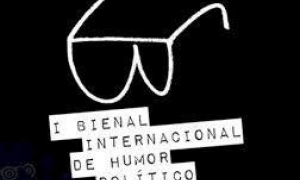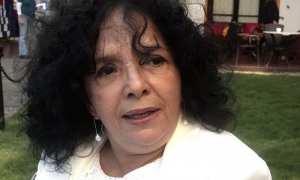
The actress Amada Morado returns to center stage. This time in an intimate conversation for the short film Unos minutos en la vida de … (A few minutes in the life of…) by Carlos Collazo, on the occasion of receiving the ACTUAR Prize for lifetime achievement.
The conversation with Amada (Habana, 1944) occurred over the course of several years, since she debuted as a director with Pinocho for children, presented by the community project Hacedor de Sueños, and a work by Esther Suárez, La travesía de Byron, with the Hubert de Blanck Company.
An actress who conveys impressive security on stage, she is recognized for her versatility, made clear just mentioning a few of the works with which she left her mark throughout a long, intense career, since she emerged professionally in Fiebre de Primavera by Noel Coward, directed by Rubén Vigón, with none other than María de los Ángeles Santana, who naturally played the leading role.
She was part of the legendary Teatro Estudio directed by Raquel and Vicente Revuelta, and there participated in notable performances that included, among others, Santa Juana de América, and La Duodécima Noche, both directed by Vicente Revuelta; Bodas de sangre, directed by Berta Martínez; and Parece Blanca, directed by its author, Abelardo Estorino.
Modest and talkative, always polite and friendly, she states that she was shaped by the Teatro Estudio, where “I had the good fortune and honor of working with extraordinary directors, actresses, and actors, teachers who taught us discipline, rigor, and love for theater.”
Discussing how she has assumed so many roles, she insists that what has been important to her is that “they were different, didn’t box me into a single line, not the bad, bad girl, or the goody good.” And in terms of genres, she added, “I like tragedy; it carries many messages, but perhaps I’m more inclined toward drama and comedy, both very difficult, each one with its own peculiarities.”
Her experience on Cuban television was also distinguished, with recognized characters in several series: Emelina, in Destino prohibido; Paula, in Polvo en el viento, Cacha la manca, and El año que viene. “They were not great, but not trifling either; you had to seek out their characteristics, try to make them real, credible, human; not criticizing the character, but rather trying to understand and defend them.”
Amada Morado states in Unos minutos en la vida de… that her dreams of being an actress have come true, saying, “I love the theater, that’s where I was trained, but I am also grateful to television, because what I like is acting.”
MORE ON THE SERIES
Filmmaker Carlos Collazo has presented the first six 15-minute episodes of the project entitled generically Unos minutos en la vida de.... (A few minutes in the life of…)
Produced under the auspices of the Performing Arts Artistic Agency (ACTUAR), Collazo presented the audiovisuals devoted this year to actresses Amada Morado, Diana Rosa Suárez, Ofelia Núñez, and Miriam Socarrás, and actors Carlos Cabal and Erdwin Fernández (with the collaboration of Nilda Collado).
ACTUAR director Jorge Luis Frías told our publication, "There are already two DVDs with the 12 episodes released in 2018 and this year we plan to make 18."
The series features the rich heritage of dramatic artists, singers, composers, dancers, choreographers, who have worked in theater, television and radio, numbering already 30.
ACTUAR is a cultural management agency affiliated with the National Performing Arts Council, which this July celebrated its first 40 years, and currently represents some 1,400 artists, Frías said.
To celebrate the anniversary, two documentaries were released, one dedicated to Marta Jiménez Oropesa on the occasion of her centenary, and another featuring Gina Cabrera, who turned 91 on May 28, and “received us at her home with the kindness of always.”
Frías added that ACTUAR prizes for lifetime achievement will be awarded to 20 actresses and 20 actors, including Corina Mestre, Cristina Obin, Daysi Granados, Irela Bravo, Mirtha Ibarra, Paula Ali, Héctor Echemendía, Manuel Porto, Mario Aguirre, and Rubén Breña.






